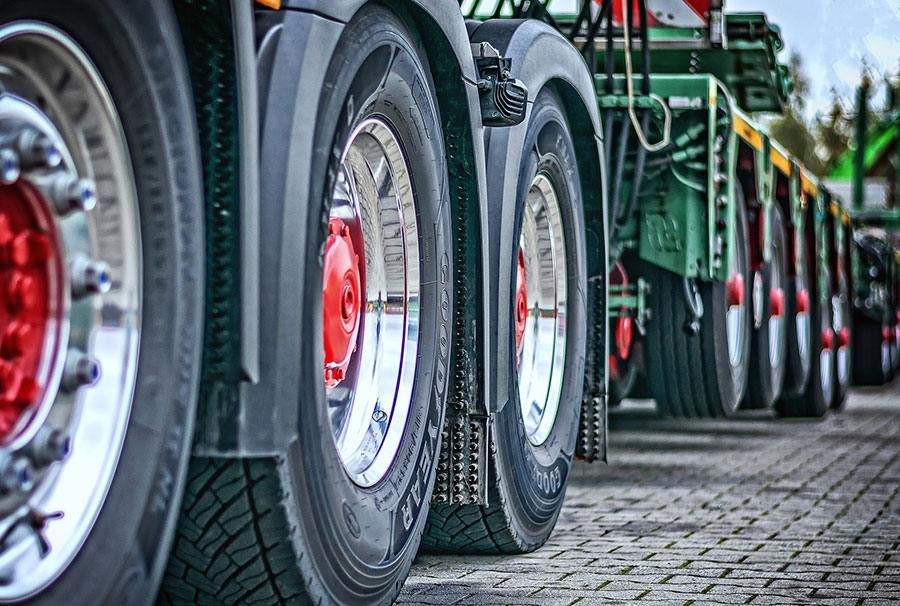Starting a new business venture is exciting, scary and risky. You’ll only ever really know if you are doing the right thing if you take the plunge and go for it.
But there are ways to limit the risk before setting up shop, and doing good market research is essential for creating a smart and effective business plan. Even established brands like Kodak can fail at the height of their success due to a lack of proper market research.
In the wake of Brexit, the UK is crying out for HGV drivers so naturally, this seems like the ideal time to create a delivery or haulage company. All that’s left to do is sit back and count the pounds as they start rolling in, right? Let’s consider all of the options first, and discuss whether now is the right time to start an HGV business.
A gap in the HGV driver market?
Much like stock market investors who ‘buy the dip’, creating a business in a seemingly struggling industry can be a good idea. Especially the haulage industry which is suffering an influx of demand but not enough drivers to satisfy it. An estimated 268,000 people were employed as HGV drivers between July 2020 and June 2021, 53,000 fewer than the peak, during the year ending June 2017 (321,000).
Most people rely on delivery drivers, whether that’s for their groceries, Amazon drops or new suites of furniture, HGVs and haulage companies make the world go around. When identifying a gap in the market it’s important to research whether there is a demand or need for what you will be providing. For example, there may be a gap in the market for chocolate teapots but there isn’t going to be a huge demand for them.
In terms of the HGV industry, it’s about choosing between any niches that you think would be worthwhile or simply offering a general haulage company. That may be specialising in transporting pharmaceuticals, food, livestock, cars or waste disposal for example.
Creating a business plan
Finding the money to start a new business doesn’t come easily and banks like to know the people they are investing in have thought about their proposals.
Creating a business plan for your HGV business will make you a more attractive prospect and it will showcase to you whether it’s a profitable venture or not. You will also have to decide what type of freight business you want to be.
Freight forwarding or freight brokering?
Freight forwarding takes goods from clients looking to ship them and stores them at a hub. During that time the freight forwarding company arranges collection from another company or delivers the goods to their final destination themselves.
Freight brokering, on the other hand, acts as a middleman and collects goods from location A before simply delivering them to location B. Both have their merits and which direction you wish to take is worth considering.
Starting up on your own - considerations
When starting up on your own it’s important to consider your options and try to figure out just how big or small you want your HGV business to be. Are you going to have a fleet of dozens of trucks or are you going to keep it simple with just one or two?
You will also have to decide where you are going to call home. The beauty of the role of an HGV driver is that they can go pretty much anywhere the roads will take them but they should return to base when the deliveries are done.
Research by property consultancy firm, Knight Frank, discovered that
investment in UK warehouses totalled a record £6bn in the first half of 2021 to keep up with online shopping demand. This may mean that finding a place to call home is easier than before but equally there may be more competition for premises.
There is also the question of where you base yourself. Do you want to position yourself close to the South East for easy access to Europe and London or in the Midlands to deliver across the UK? The scale of your business may dictate where you operate from, with a small-scale HGV service better suited to local deliveries.
Practical costs
Besides a business loan to get your HGV startup off the ground, you will also have to consider creating a fleet of trucks and purchasing a means to track them. There are also logistical things like fuel cards to consider and if you are short on drivers then you may wish to look for recruits.
If you are thinking of establishing a family-run business then
HGV training is essential to guarantee the safety of your drivers and the freight they are transporting. Or to hone your skills if your licence has expired.
Even if you aren’t planning on investing in premises, you will need to find somewhere to park your lorry when it’s not in use. You can store it on the road if you can find a large enough space but it comes with theft risks. For that reason, finding a secure overnight parking location is a must.
Examples of typical HGV startup costs:
* Truck
* Training
* Building a website and marketing campaign
* Gaining trading licences
* Training yourself or additional drivers
* Insurances; vehicle, public liability and professional indemnity
* Premises
* Security
How is the fuel price increase impacting the freight industry?
After driver wages, fuel is the second largest expense for HGV businesses, and that is a cost that continues to rocket up. Drivers will notice their costs increasing per mile when paying with their fuel cards, an expense that is ultimately passed onto the business.
There is also the looming date of 2040; when the government plans to abolish new emission-producing HGVs from being made. This should come up in your market research and it’s something to keep one eye on for the future of your startup.
Fuel costs will continue to increase and your expenses will keep growing, meaning they need to be factored in and increasing the price you charge may be necessary. However, charging a higher price may be tricky as you are starting up, especially if clients can turn to your competition at lower costs.
Finally, all-electric HGVs are looking like they are the future of the industry. With
Amazon launching fully electric lorries in the UK already, it’s only a matter of time before others follow. Whether your HGV business can afford to go all-electric from the get-go is down to the numbers and whether the range and charging time is something you can contend with. Other sustainable options include biodiesel, natural gas and hydrogen-powered trucks.
Should you start an HGV business now?
There is plenty of demand for HGV drivers in the current economic climate but there are other factors to consider. Fuel prices are going through the roof and while electric lorries are the future, the infrastructure isn’t fully there yet.
Deciding whether you can meet future sustainability targets set by the government should have a significant bearing on your decision. It’s an uncertain time but if you feel like you can make the numbers work then there should be plenty of deliveries heading your way.
Guest author







